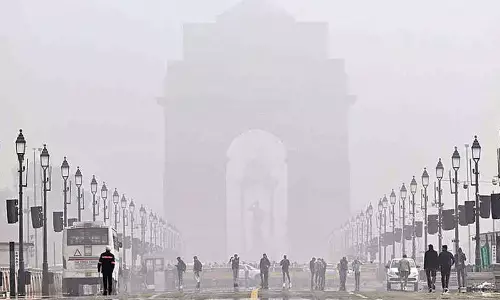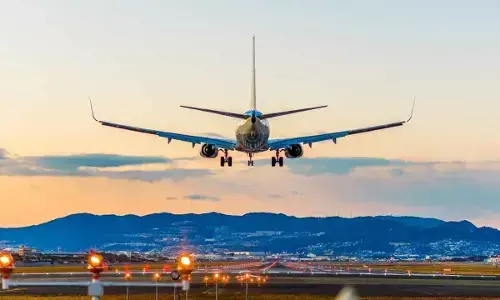Hyderabad Food Delivery Executive Dies in Riyadh While Speeding to Deliver Iftar Order

Hyderabad’s Mohammed Maqsood Hussain, 33, died in Riyadh while rushing to deliver an Iftar order. His tragic death highlights risks faced by delivery workers abroad.
In Riyadh, a food delivery worker from Hyderabad died while rushing to deliver an Iftar package. On March 18, Mohammed Maqsood Hussain, 33, a resident of Jahanuma, Hyderabad, was killed in a traffic accident when his motorcycle struck another car. He immediately died of his wounds.
Through a subcontractor in Riyadh, Hussain was employed as a delivery executive for a well-known food delivery service. His remains are anticipated to be returned to India shortly.
Risky Positions in the Food Delivery Industry
The Gulf countries' rapidly expanding food delivery sector has drawn thousands of young workers from South Asian countries, including India. But a lot of them deal with dangerous situations, poor pay, and difficult working conditions.
Hussain had come to Saudi Arabia, like many others, thinking he was going to work for a reputable food delivery service. Nevertheless, he was not a direct employee but rather worked through a subcontractor. Like many other delivery workers, he was thus exposed to problems pertaining to his job and pay.
Due to contractual responsibilities, it is challenging for workers to quit their positions and go back home, according to Abdul Jabbar, a social worker in Riyadh who works in Hyderabad. He added that a number of Hyderabad-based motorbike delivery drivers were stuck in Saudi Arabia as a result of comparable job difficulties.
A large number of these employees are hired by subcontracting companies that provide food delivery services for well-known applications, frequently without the necessary employment contracts or visa checks.
Hussain’s tragic death sheds light on the growing concerns surrounding the safety and rights of delivery executives working in high-risk conditions abroad.







